Leading Institutions in the Pacific Northwest Take Center Stage at the Summit on Cancer Health Disparities in Seattle

Author
Binaytara Team
On April 25, 2025, researchers from across the United States will convene at the Summit on Cancer Health Disparities (SCHD) happening in Seattle, United States. SCHD is one of the few conferences that addresses disparities in cancer care and examines how best to implement the latest advancements into clinical practice. It is not only about learning, but also about integrating acquired knowledge into clinical practice.
Researchers from several major institutions across the Pacific Northwest will lead the conversation at SCHD25. Notable institutions such as Fred Hutchinson Cancer Center, University of Washington, Swedish Cancer Institute First Hill, Virginia Mason Medical Center, OHSU Knight Cancer Institute, and PATH will be represented.
The Summit on Cancer Health Disparities (SCHD25) offers healthcare professionals in the Pacific Northwest and beyond a unique opportunity to address critical cancer care challenges across underserved communities through collaborative, solution-focused discussions. Dr. Shah, the president of Binaytara, remarked,
“The Pacific Northwest is incredibly diverse, with immigrant and Indigenous communities, rural populations, and underserved urban areas, all of whom deserve better access to care. At SCHD25, we focus on finding practical solutions to these challenges. By joining us at the Summit on Cancer Health Disparities, you will have the opportunity to collaborate with both local and national leaders to address the barriers to care in your own communities.”
Here is a closer look at some of the speakers in PNW advancing the frontiers of oncology while keeping equity at the forefront of care.
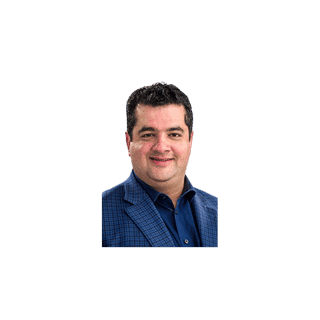
1. Mazyar Shadman, MD, MPH
Dr. Mazyar Shadman, a renowned hematologic oncologist and translational researcher at Fred Hutchinson Cancer Center / University of Washington, is at the forefront of advancing cellular immunotherapies, particularly CAR T-cell treatments for lymphoma, leukemia, and myeloma. As a leader in clinical trials and patient care, his work bridges cutting-edge science with real-world implementation challenges.
At SCHD25, Dr. Shadman, also the Innovators Network Endowed Chair at Fred Hutchinson Cancer Center, will chair a critical breakout session on Access to Cellular Therapy, addressing systemic barriers to life-saving treatments.
"CAR T-cell therapy is a game-changer, but access remains limited, whether due to geographic disparities, misconceptions about eligibility, or logistical hurdles for patients and caregivers," he notes. "We are tackling this at every level: educating providers, streamlining center requirements, and advocating for support systems to ensure equity."
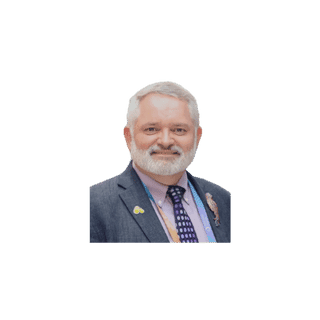
2. Dan Milner, MD. MSc, MBA
Dr. Dan Milner is the Executive Director of the ATOM Coalition (UICC) and former Chief Medical Officer of the American Society for Clinical Pathology (ASCP). He has been a driving force in global cancer care equity. With decades of experience in pathology, infectious diseases, and health systems strengthening, he champions innovative solutions to expand access to cancer diagnostics and treatment worldwide.
At SCHD25, Dr. Milner will chair a critical session on Developing Effective Advocacy Campaigns, a topic close to his mission. As he puts it:
"Successful advocacy starts with patient voices, survivors, families, and frontline healthcare workers. Change happens when advocates demand it from the ground up, just as we saw with HIV. But momentum requires more than stories; it needs patients at the table with governments, negotiating pricing and priorities."
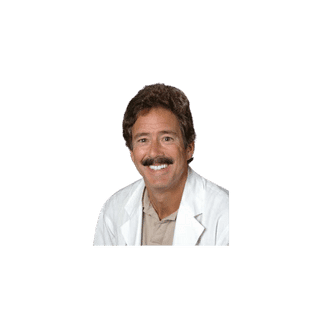
3. David Aboulafia, MD
Dr. David Aboulafia is a highly respected hematologist-oncologist at Virginia Mason Medical Center, where he specializes in treating blood disorders and cancers, with a particular focus on HIV-related malignancies and hematologic conditions. A dedicated clinician-researcher, he serves as the Principal Investigator for the ANCHOR Study at Virginia Mason, a groundbreaking national initiative aimed at eliminating anal cancer in high-risk populations.
With decades of experience in both patient care and clinical research, Dr. Aboulafia is deeply committed to advancing equitable, patient-centered oncology care. His work bridges innovative research with real-world impact, making him a sought-after expert in his field.
He will co-chair SCHD25 and will chair the first session that discusses Evolving the Landscape Towards Cancer Health Equity.
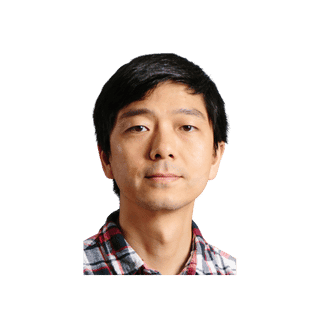
4. Hoifung Poon, PhD
Dr. Hoifung Poon, a leading AI researcher at Microsoft Health Futures and the University of Washington, is revolutionizing precision oncology through generative AI. His work focuses on harnessing real-world data, from clinical notes to multi-omics, to create "digital twins" of patients, enabling population-scale insights for tailored cancer care and clinical trial matching.
At SCHD25, Dr. Poon will speak during Session 7: Leveraging Technology and AI to Support Cancer Health Equity, where he will unveil how emerging AI can dismantle disparities in cancer care. As he explains:
"If we can embed patient journeys into a unified AI framework, we can snap our fingers and conjure 5 million ‘second opinions’, finding similar patients worldwide to guide treatment and discovery. This isn’t just about efficiency; it’s about equity."
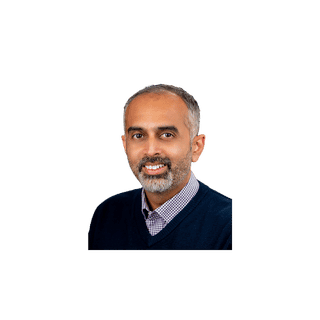
5. Siddhartha H. Devarakonda, MD
Dr. Sid Devarakonda is a board-certified thoracic medical oncologist at Swedish Cancer Institute First Hill, specializing in lung cancer and other smoking-related malignancies. With a strong research background in health disparities and outcomes, evidenced by his prolific research, he is a passionate advocate for equitable cancer care, particularly for underserved populations disproportionately affected by tobacco-related cancers.
At SCHD25, Dr. Devarakonda will lead Breakout Session A1: Smoking-Related Cancer Disparities, diving into systemic barriers, from access to screening to biomarker testing gaps, that perpetuate inequities. His panel will spotlight actionable strategies to bridge these divides, informed by his clinical expertise and research on real-world patient outcomes.
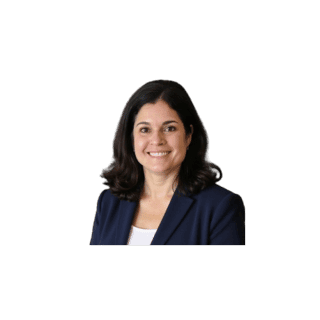
6. Eneida Nemecek, M.D., M.S., M.B.A.
Dr. Eneida R. Nemecek is a renowned pediatric hematologist-oncologist and Professor at OHSU, where she combines her clinical expertise with advanced training in health systems management (MS, MBA) to address systemic inequities in cancer care. A leader in pediatric oncology and stem cell transplantation, her work focuses on improving outcomes for underserved populations through innovative care models and policy advocacy.
At SCHD25, Dr. Nemecek will deliver a Keynote Address in Session 2, tackling the Root Causes of Cancer Disparities. Drawing on her multidisciplinary background, she will illuminate how fragmented systems perpetuate inequities and propose actionable solutions to bridge gaps in access, research, and culturally competent care.
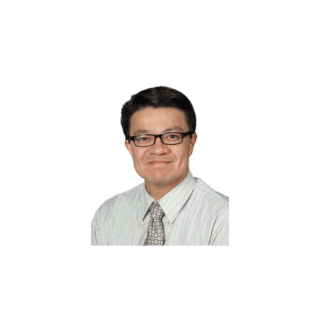
7. Joseph Rosales, MD
Dr. Joseph Rosales, a dedicated hematologist-oncologist at Virginia Mason Medical Center, is recognized for his innovative work in care coordination and health equity. The recipient of Binaytara's 2022 Rising Star for Health Equity Award, Dr. Rosales, has made significant contributions to improving access to cancer care through education and system-level improvements.
At SCHD25, Dr. Rosales will co-chair Session 9: Links to Care - Real World Experience: Building Bridges Between Health Systems. Attendees will gain valuable insights from this session on creating sustainable partnerships that enhance patient outcomes across diverse healthcare environments.
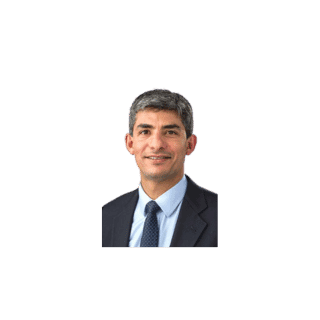
8. Shailender Bhatia, MD
Dr. Shailender Bhatia, a renowned medical oncologist at Fred Hutchinson Cancer Center and the University of Washington, is at the forefront of developing accessible cancer therapies worldwide. His groundbreaking work focuses on immunotherapy and melanoma treatment, with particular emphasis on creating sustainable solutions for low-resource settings.
At SCHCD25, Dr. Bhatia will take center stage in two critical roles. He will chair Breakout Session D in Session 9: Global Oncology - Innovative Solutions to Cancer Care Accessibility, where he will lead discussions on overcoming systemic barriers to treatment. Additionally, he will present compelling findings from the AFFORD-IO trial, a pioneering Phase 2 study evaluating low-dose, reduced-frequency nivolumab in Uganda that could revolutionize immunotherapy access in resource-limited settings.
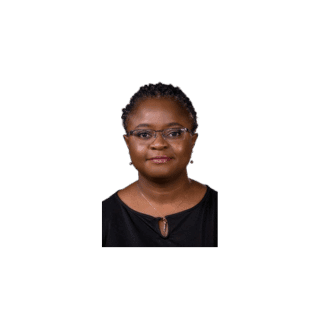
9. Folashade Otegbeye, MBChB, MPH
Dr. Folashade Otegbeye, a distinguished hematologist-oncologist at Fred Hutchinson Cancer Center and the University of Washington, is a leading voice in expanding access to cutting-edge cellular therapies. She is a clinical researcher specializing in blood stem cell transplantation for hematologic malignancies and marrow disorders. Her laboratory research focuses on transplant immunology and immune cell therapies, while her clinical work aims to improve outcomes for patients with bone marrow failure syndromes and myeloproliferative disorders. With dual expertise in hematologic malignancies and public health (MPH), she brings a unique perspective to addressing systemic barriers in cancer care delivery.
At SCHD25, Dr. Otegbeye will deliver the opening talk for Breakout Session B in Session 3, focusing on critical challenges and solutions in Access to Cellular Therapy.
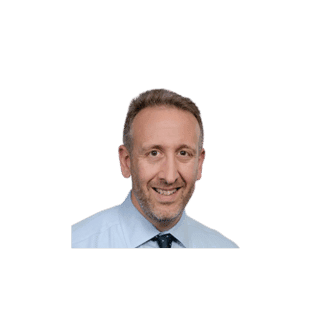
10. Corey Casper, MD, MPH
Dr. Corey Casper, a leading global health expert and Professor of Medicine & Global Health at the University of Washington, serves as Director of the Global Oncology Program at Fred Hutchinson Cancer Center. A physician-scientist with decades of experience in low- and middle-income countries (LMICs), he specializes in building sustainable cancer care systems that integrate research, education, and clinical innovation.
At SCHD25, Dr. Casper will co-chair Session 11: Building Sustainable Partnerships for Cancer Health Equity, where he will share strategies for forging cross-sector collaborations to address systemic inequities. He will also present groundbreaking insights on Sustainable Care Models in LMICs, drawing from his work establishing cancer detection and treatment programs in sub-Saharan Africa and other underserved regions. His approach emphasizes locally driven solutions, workforce training, and scalable infrastructure to close the global cancer care gap.
About SCHD25
SCHD25 is a Continuing Education (CME/ACPE)-accredited event. Several oral and poster presentations will highlight new research and innovations, with topics ranging from free and accessible oncology education platforms like OncoBlast to the application of machine learning models in assessing cancer risk across global populations.
At its core, SCHD25 centers on a vital but often overlooked component of cancer care: equity. While advances in treatment and technology continue to transform the oncology landscape, questions persist about access, awareness, and the affordability of care. SCHD25 aims to tackle these questions head-on, encouraging attendees to explore the real-world implications of research and translate insights into strategies that reduce disparities in cancer outcomes.
Register here to join the conversation that will shape the future of how we treat and manage cancer patients. For CME/ACPE-related inquiries, email us at [email protected]. Follow the conversations on cancer disparities online with the hashtag #SCHD25.